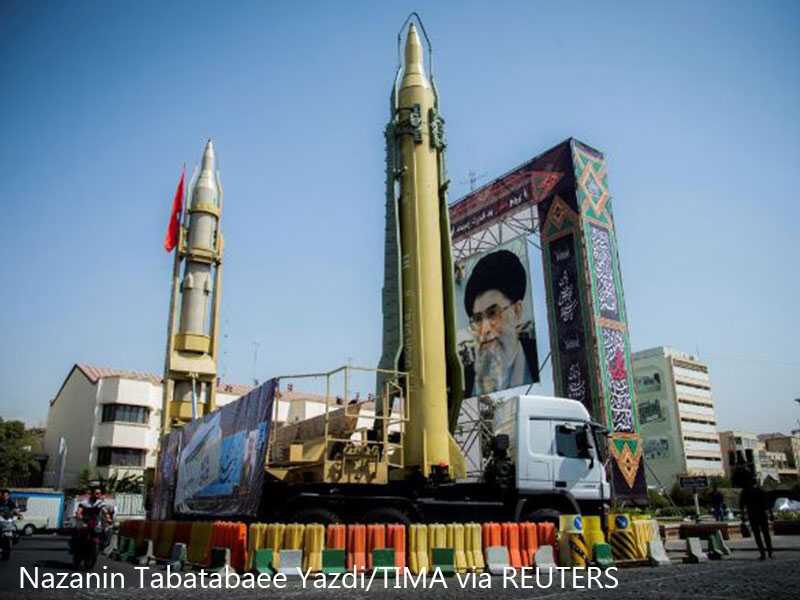 Iran confirms missile test in defiance of U.S.
Iran confirms missile test in defiance of U.S.A senior Iranian military commander has confirmed that Tehran recently carried out a ballistic missile test, to the anger of the United States, the Fars news agency said on Tuesday.
The Revolutionary Guards official’s comment came after U.S. Secretary of State Mike Pompeo’s assertion earlier this month that Iran had test-fired a missile capable of carrying multiple warheads and reaching the Middle East and Europe.
“We will continue our missile tests and this recent action was an important test,” Guards aerospace division head Amirali Hajizadeh was quoted as saying by the semi-official Fars news agency.
“The reaction of the Americans shows that this test was very important for them and that’s why they were shouting,” he added, without specifying what type of missile had been tested.
The U.N. Security Council met last week to discuss the test, which the United States, Britain and France said flouted U.N. restrictions on Tehran’s military program.
U.S. President Donald Trump pulled out of an international agreement on Iran’s nuclear program in May and reimposed sanctions on Tehran. He said the deal was flawed because it did not include curbs on Iran’s development of ballistic missiles or its support for proxies in Syria, Yemen, Lebanon and Iraq.
Iran has ruled out negotiations with Washington over its military capabilities, particularly the missile program run by the Guards. It says the program is purely defensive and denies missiles are capable of being tipped with nuclear warheads.
Hajizadeh said Iran holds up to 50 missile tests a year.
“The issue of missiles has never been subject to negotiations and nothing has been approved or ratified about its prohibition for the Islamic Republic of Iran in (U.N.) resolution 2231,” Foreign Minister Mohammad Javad Zarif said on Tuesday, according to the Tasnim news agency.
“Our defense doctrine is basically founded upon deterrence.”
Under U.N. Security Council Resolution 2231, which enshrined the nuclear deal in 2015, Iran is “called upon” to refrain from work on ballistic missiles designed to deliver nuclear weapons for up to eight years.
Some states argue the language does not make it obligatory.
Last month, Hajizadeh said U.S. bases in Afghanistan, the United Arab Emirates and Qatar, and U.S. aircraft carriers in the Gulf were within range of Iranian missiles.
The head of the Guards, Major General Mohammad Ali Jafari, said on Tuesday the United States was becoming weaker.
“American power is declining,” Jafari said, according to Fars. “The enemies don’t dare bring up the issue of overthrowing the Islamic Republic and they will take this wish to the grave.”
In October, the Revolutionary Guards fired missiles at Islamic State militants in Syria after the Islamist group said it was responsible for an attack at a military parade in Iran that killed 25 people, nearly half of them Guards members.
No comments:
Post a Comment